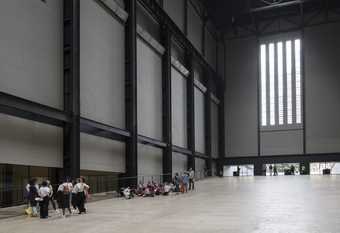Each session in this short course involves an artist presentation, critical discussion on the role of learning spaces in art, and workshop activities in Tate Modern’s displays. The group will also consider the wider social and political issues shaping current arts practices and pedagogy.
The course takes Tate Modern as its main case study for a discussion of how museums are often contested spaces. We’ll consider how artists and learning programmes might challenge traditional ideas around access to public space and whose voices are heard within arts institutions.
The course is led by curators Richard Martin and Jennifer Shearman from Tate’s Public Programmes team.
Organised in collaboration with the Centre for Arts and Learning at Goldsmiths, University of London.
Course Structure
27 January: Defining
In this opening session, the group will discuss the ideals and characteristics we associate with public spaces. We’ll begin our investigations into how pedagogical theories might help us better understand the potential value of museums as places for learning.
10 February: Dismantling
This session focuses on historical and current tensions around museum spaces. The group will visit Kara Walker’s major new installation in the Turbine Hall as a prompt for wider discussions about how contemporary art can be a tool for learning about politics, history and society.
24 February: Doing
This final session brings together ideas for new models of practice in the arts. How can we build more inclusive spaces within art museums? How can educators, artists and audiences work together to change museums?

